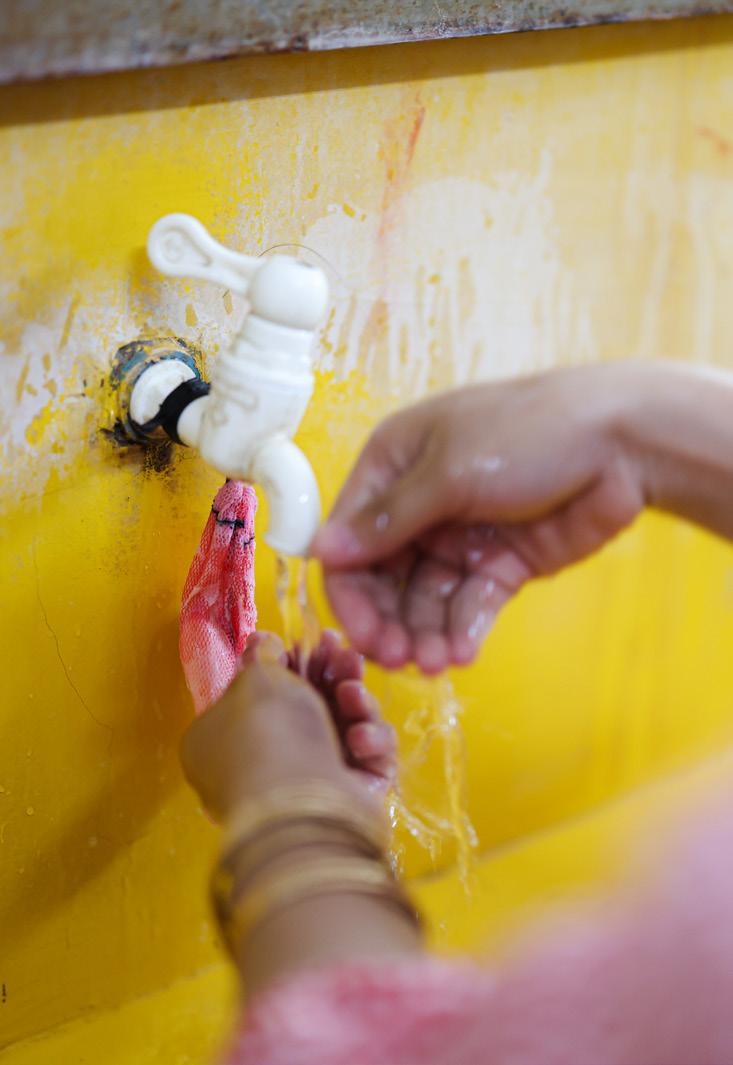
1 minute read
Our Strategic Role
WaterAid is the largest not-forprofit global organisation that focuses solely on sustainable and safe water, sanitation and hygiene (WASH). With our partners and supporters, we have made a huge difference. But the scale of the challenge over the next decade calls on us to work with greater urgency, acting as a catalyst for change on a much larger scale.
We believe the barriers to achieving universal, sustainable and safe WASH can be overcome, but definitive change will only occur when the whole system –the people, behaviours, policies, resources, processes and institutions – is strengthened. Change must happen within communities for real and meaningful impact. It should be supported and scaled through strong national WASH systems, while being accelerated through regional and global commitments and action.
Advertisement
To achieve this, we are working with government institutions, public and private service providers, civil society organisations and communities. We are increasing the focus on sanitation and hygiene progress to bring them in line with water access. Where safely managed services are not immediately possible, we are prioritising basic service levels, focusing on universal access and continuity of services. We invest in safely managed service levels where there is potential for them to be sustained, especially in growing urban and dense settlements.
Progress
on WASH services
is unequal within countries, districts, settlements, and even households. People who are marginalised, such as women, children, or people with disabilities, continue to face multiple barriers to even basic WASH. All that we do is founded in peoples’ rights to water and sanitation. Our work contributes to progress for all, no matter who or where they are – with a specific priority on gender equality and those hardest to reach.
In this Annual Report, you will read about some of the impressive progress we have made with our partners, sponsors, supporters and the communities we work in over the past year. You will also read about the impact that progress has had for some of the world’s most disadvantaged people, illustrating just how powerful access to clean water, decent toilets, and good hygiene can be.
Climate Change: We’re improving WASH access of people with disabilities and caregivers in Cambodia and Bangladesh, on page 17.
Water: We’ve guided communities to reduce erosion and increase the volume of water soaking into the groundwater in Timor-Leste, on page 9.
Sanitation: Community-based activities have had remarkable results in pushing rates of open defecation down as households have constructed or improved their toilets in Papua New Guinea, on page 11.
Hygiene: Improved handwashing and cleaning behaviors are saving lives in healthcare facilities in Cambodia, on page 12.








